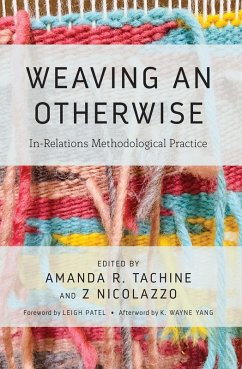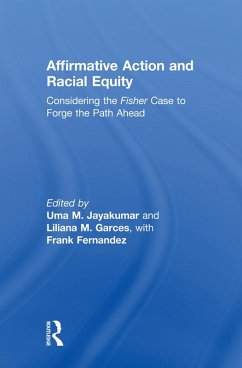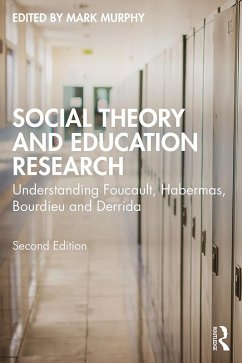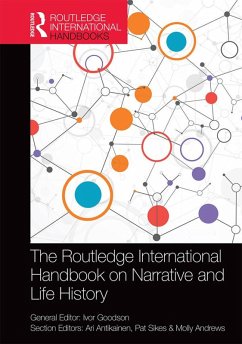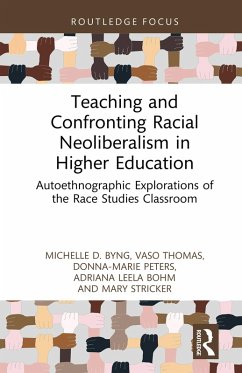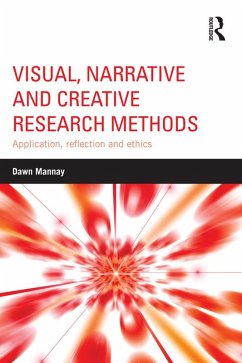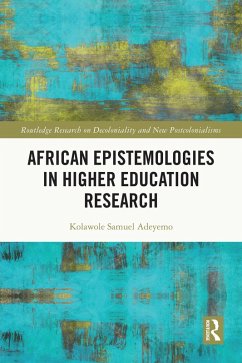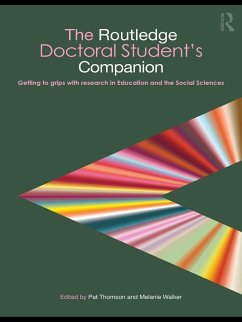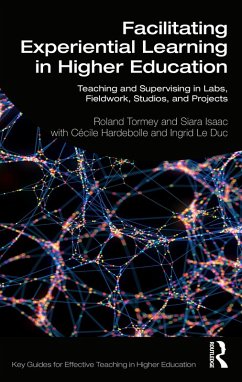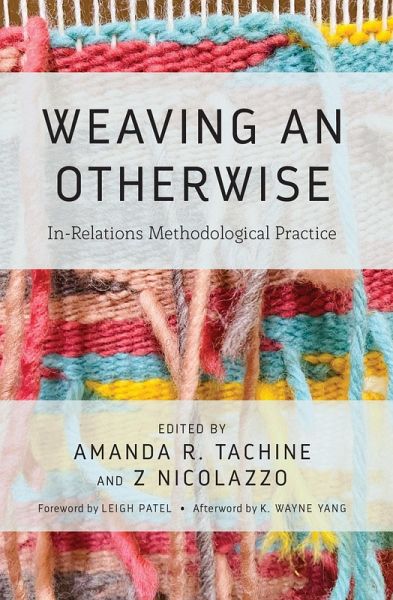
Weaving an Otherwise (eBook, ePUB)
In-Relations Methodological Practice
Redaktion: Tachine, Amanda; Nicolazzo, Z.
Versandkostenfrei!
Sofort per Download lieferbar
28,95 €
inkl. MwSt.
Weitere Ausgaben:

PAYBACK Punkte
14 °P sammeln!
Who (and what) are you bearing witness to (and for) through your research? When you witness, what claims are you making about who and what matters? What does your research forget, and does it do it on purpose?This book reconceptualizes qualitative research as an in-relations process, one that is centered on, fully concerned with, and lifts up those who have been and continue to be dispossessed, harmed, dehumanized, and erased because of white supremacy, settler colonialism, or other hegemonic world views.It prompts scholars to make connections between themselves as "researchers" and affect, an...
Who (and what) are you bearing witness to (and for) through your research? When you witness, what claims are you making about who and what matters? What does your research forget, and does it do it on purpose?This book reconceptualizes qualitative research as an in-relations process, one that is centered on, fully concerned with, and lifts up those who have been and continue to be dispossessed, harmed, dehumanized, and erased because of white supremacy, settler colonialism, or other hegemonic world views.It prompts scholars to make connections between themselves as "researchers" and affect, ancestors, community, family and kinship, space and place, and the more than human beings with whom they are always already in community.What are the modes and ways of knowing through which we approach our research? How can the practice of research bring us closer to the peoples, places, more than human beings, histories, presents, and futures in which we are embedded and connected to? If we are the instruments of our research, then how must we be attentive to all of the affects and relations that make us who we are and what will become? These questions animate Weaving an Otherwise, providing a wellspring from which we think about our interconnections to the past, present, and future possibilities of research.After an opening chapter by the editors that explores the consequences and liberating opportunities of rejecting dominant qualitative methodologies that erase the voices of the subordinated and disdained, the contributors of nine chapters explore and enact approaches that uncover hidden connections and reveal unconscious value systems.
Dieser Download kann aus rechtlichen Gründen nur mit Rechnungsadresse in A, B, BG, CY, CZ, D, DK, EW, E, FIN, F, GR, HR, H, IRL, I, LT, L, LR, M, NL, PL, P, R, S, SLO, SK ausgeliefert werden.




